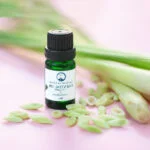
During pregnancy, many women seek out natural and holistic methods to support their physical and emotional well-being. One such method gaining popularity is aromatherapy. Aromatherapy involves the use of essential oils extracted from plants to promote relaxation, relieve symptoms, and enhance overall wellness. In this article, we will delve into the world of aromatherapy during pregnancy, exploring its benefits, safety considerations, and how it can address common concerns that arise during this special time.
Pregnancy is a transformative journey filled with both joy and challenges. From dealing with morning sickness and fatigue to managing mood swings and preparing for labor, expectant mothers often turn to various techniques to alleviate discomfort and create a nurturing environment. Aromatherapy offers a natural way to support these needs through the power of scent and therapeutic properties found in essential oils.
By understanding the basics of aromatherapy and how it works during pregnancy, you can gain insight into its potential benefits for you and your baby. Safety is of utmost importance during this delicate time, so we will also discuss precautions and guidelines for using essential oils safely throughout your pregnancy. Additionally, we will provide a comprehensive guide on the top essential oils recommended for pregnancy. These oils can help address specific concerns such as nausea, fatigue, and mood swings.
Furthermore, we’ll explore how aromatherapy can be integrated into your self-care routine during pregnancy. From relaxation techniques to aromatherapy massage, pampering yourself as a mama-to-be has never been more blissful. We’ll also discuss utilizing aromatherapy in creating a calming environment not just for you but also in the nursery and even during labor.
Throughout this article, we will highlight essential oils that are safe for use during pregnancy while also shedding light on oils to avoid during this period. Additionally, if you like getting hands-on with DIY projects or enjoy creating personalized blends tailored to suit your needs during pregnancy journey – we have got you covered. We will provide simple and easy aromatherapy blends for common pregnancy symptoms.
Understanding Aromatherapy
The Basics of Aromatherapy
Aromatherapy is a holistic approach to health and wellness that utilizes the power of essential oils extracted from plants. These oils are highly concentrated and contain the natural aromatic compounds that give plants their distinctive scents. When inhaled or applied topically, these oils can have a profound impact on physical, emotional, and mental well-being.
Aromatherapy during Pregnancy
During pregnancy, aromatherapy can be a valuable tool for promoting relaxation, reducing stress and anxiety, relieving discomfort, and supporting overall well-being. The sense of smell is closely linked to emotions and memories, making aromatherapy an effective way to positively influence mood and enhance relaxation during this transformative time.
It’s important to note that certain essential oils should be avoided or used with caution during pregnancy due to their potential effects on hormones or uterine contractions. However, when used safely and appropriately under the guidance of a qualified professional or experienced aromatherapist, aromatherapy can provide expectant mothers with numerous benefits throughout each stage of pregnancy.
How Does Aromatherapy Work During Pregnancy?
The inhalation of essential oils stimulates the olfactory system in the brain, which then sends signals to other areas involved in sensory perception and emotion regulation. This can promote relaxation, reduce stress levels, improve mood, and even alleviate nausea associated with morning sickness.
In addition to inhalation, topical application of diluted essential oils through massage or bath soaks allows for absorption through the skin into the bloodstream. This provides localized relief from muscle tension or discomfort while also allowing for systemic benefits throughout the body.
It’s important to keep in mind that every individual may respond differently to specific essential oils due to unique sensitivities or allergies. Therefore, it’s crucial for pregnant women to consult with their healthcare providers before using any new essential oil during pregnancy. By understanding aromatherapy and how it works, expectant mothers can safely harness its potential benefits to enhance their pregnancy journey.
Safety First
Essential oils can provide many benefits during pregnancy, but it is important to use them safely. Pregnant women should take certain precautions and follow guidelines to ensure a healthy and safe experience with aromatherapy.
First and foremost, it is essential to consult with a healthcare professional before using any essential oils during pregnancy. While essential oils are generally considered safe when used properly, every pregnancy is different and certain conditions or complications could change what is safe for an individual.
During pregnancy, the concentration of essential oils used should be greatly diluted compared to what would typically be used outside of pregnancy. It is recommended to use a 1% dilution or less, meaning only one drop of essential oil per teaspoon (or 5 mL) of carrier oil. This helps to minimize any potential risks or adverse reactions.
Certain essential oils should also be avoided altogether during pregnancy. These include but are not limited to: basil, cinnamon, clary sage, clove bud, cypress, fennel, jasmine absolute, marjoram, myrrh, oregano, pennyroyal, rosemary, thyme ct. thymol and wintergreen. It is important to note that this list may vary depending on individual circumstances or medical conditions.
Lastly, it is important to pay attention to any possible allergic reactions or sensitivities when using aromatherapy during pregnancy. Always perform a patch test on a small area of skin before applying any essential oil blends topically. If any redness, itching or irritation occurs after application discontinue use immediately.
The Top Essential Oils for Pregnancy
Lavender Oil
Lavender oil is often considered a must-have essential oil during pregnancy due to its numerous benefits. Known for its calming and soothing properties, lavender oil can help reduce anxiety, promote better sleep, and alleviate stress. It is also effective in relieving headaches or migraines that are common during pregnancy. Additionally, lavender oil is known to have pain-relieving and anti-inflammatory properties, making it useful for relieving common discomforts like backaches or muscle pains.
Peppermint Oil
Peppermint oil is another versatile essential oil that can provide relief from various pregnancy symptoms. Its refreshing scent helps combat nausea, morning sickness, and even indigestion. In addition, peppermint oil has cooliing and analgesic properties that can alleviate headaches or migraines. However, pregnant women should use peppermint oil with caution as it may cause heartburn or worsen acid reflux in some cases.
Chamomile Oil
Chamomile oil is well-known for its calming effects on the mind and body. During pregnancy, hormonal changes can lead to heightened emotions and mood swings. The use of chamomile oil can help promote relaxation, reduce anxiety, and improve sleep quality. It may also soothe skin irritations or inflammation caused by hormonal changes.
Lemon Oil
Lemon oil has uplifting and invigorating properties that are beneficial during pregnancy when fatigue tends to be more prevalent. The fresh citrus scent of lemon oil can help boost energy levels and improve mood. Lemon oil is also known for its cleansing properties, making it a great natural option for skincare during pregnancy.
While these essential oils are generally safe for use during pregnancy when diluted properly, it is important to remember that each pregnancy is unique, and what works for one person may not work for another. It is always advisable to consult with a healthcare professional or a certified aromatherapist before using essential oils during pregnancy, particularly if you have any underlying health conditions or concerns.
Addressing Common Pregnancy Concerns with Aromatherapy
Nausea, fatigue, and mood swings are common concerns during pregnancy. Many women experience morning sickness and feelings of nausea throughout their pregnancy. Fatigue is also a common symptom, especially during the first trimester when hormone levels are rapidly changing. Mood swings can also be attributed to hormonal fluctuations during pregnancy. Aromatherapy can help address these concerns and provide relief for expectant mothers.
One essential oil that is known for its anti-nausea properties is ginger. Ginger essential oil can help alleviate feelings of nausea and vomiting associated with morning sickness. Peppermint essential oil is another option that can provide relief from nausea. It has a refreshing scent that can help calm an upset stomach.
To combat fatigue, citrus essential oils like lemon and orange are often recommended. These oils have energizing properties that can boost mood and increase alertness. Lavender essential oil is also known for its calming effects and can help relax the body and mind, reducing feelings of fatigue.
Mood swings during pregnancy can be addressed with the use of certain essential oils as well. Bergamot essential oil has mood-lifting properties and can help balance emotions. Ylang ylang essential oil is another option that can promote relaxation and uplift the spirits.
It’s important to note that not all essential oils are safe for use during pregnancy, especially in the first trimester when the fetus is most vulnerable. Before using any essential oils, it’s crucial to consult with a healthcare professional or a certified aromatherapist who specializes in prenatal care. They will be able to provide guidance on which oils are safe to use during pregnancy and in what quantities.
Pampering the Mama-To-Be
During pregnancy, it is important for expectant mothers to take time for themselves and prioritize their well-being. One way to do this is by indulging in relaxation techniques and aromatherapy massage specifically designed for pregnant women. These techniques can help reduce stress, promote physical and mental relaxation, and enhance the overall pregnancy experience.
Relaxation techniques play a crucial role in helping expectant mothers find tranquility amidst the physical and emotional changes that come with pregnancy. Deep breathing exercises, meditation, and yoga are some methods that can be incorporated into a regular self-care routine. Alongside these techniques, aromatherapy massage can further amplify the relaxation process.
Aromatherapy massage utilizes essential oils that are safe for use during pregnancy to enhance the benefits of traditional massage therapy. The gentle touch combined with the soothing aroma of these oils can promote deep relaxation, relieve muscle tension, reduce swelling, and improve overall circulation.
It is important to note that only certain essential oils should be used during pregnancy to ensure the safety of both mother and baby. Some recommended essential oils for prenatal massage include lavender for its calming effects, ylang-ylang for relaxation and stress relief, and chamomile for its soothing properties.
Incorporating relaxation techniques and aromatherapy massage into a daily routine not only helps pregnant women unwind but also provides an opportunity for self-care and connection with their growing baby. By prioritizing their own well-being in this way, expectant mothers can create a calm and harmonious environment for themselves and their baby throughout their pregnancy journey.
Creating a Calming Environment
During pregnancy, it is important for expectant mothers to create a calming environment not only for themselves but also for their babies. Aromatherapy can play a significant role in achieving this goal. By utilizing aromatherapy in the nursery and during labor, mothers can create a soothing ambiance that promotes relaxation and peace.
In the nursery, aromatherapy can be used to create a serene atmosphere that helps babies sleep better and feel more secure. One way to incorporate aromatherapy in the nursery is to use essential oil diffusers or room sprays. Lavender essential oil is known for its relaxing properties and can help calm both babies and mothers. Adding a few drops of lavender essential oil to a diffuser or spray bottle can create a gentle scent that lingers in the air.
Another option for utilizing aromatherapy in the nursery is to use scented candles or wax melts. Opting for natural candles made from soy or beeswax and infused with essential oils ensures that no harmful chemicals are released into the air. Popular scents like chamomile or vanilla can create a warm and inviting environment for both mother and baby.
During labor, aromatherapy can aid in pain relief and relaxation. Essential oils like clary sage, jasmine, or frankincense are believed to have properties that help ease labor pains and promote relaxation during contractions. It is important to consult with a healthcare provider before using essential oils during labor to ensure they are safe for both mother and baby.
Utilizing Aromatherapy in the Nursery
- Use an essential oil diffuser with lavender essential oil
- Create calming room sprays with lavender or other gentle scents
- Opt for natural candles infused with chamomile or vanilla
Aromatherapy during Labor
- Consult with a healthcare provider before using essential oils
- Consider using clary sage, jasmine, or frankincense for pain relief and relaxation
- Use a diffuser or inhale essential oils during contractions
By incorporating aromatherapy into the nursery and during labor, expectant mothers can create an environment that promotes relaxation and helps ease any discomfort. However, it is crucial to remember that each person may react differently to essential oils.
It is always recommended to perform a patch test and consult with a healthcare provider before using any new product during pregnancy. With proper precautions and guidance, aromatherapy can become a valuable tool in enhancing the pregnancy journey for both mother and baby.
Extra Caution
While aromatherapy can offer many benefits during pregnancy, it is important to exercise caution and be aware of certain essential oils that should be avoided. Some essential oils can have potentially harmful effects on the developing fetus and should be used with extra caution or not at all. Here are some key essential oils to avoid during pregnancy:
- Clary Sage: This oil is commonly used to induce labor due to its ability to stimulate contractions. However, during pregnancy it can increase the risk of uterine contractions and lead to preterm labor. It is best to avoid clary sage entirely until after giving birth.
- Juniper Berry: Juniper berry oil has diuretic properties and can cause dehydration when used in excess. This can increase the risk of complications such as reduced amniotic fluid levels. It is recommended to avoid using juniper berry oil during pregnancy.
- Rosemary: While rosemary oil is generally considered safe for use in small amounts, it contains camphor which may stimulate menstruation and potentially lead to miscarriage or premature birth if used in large quantities. It is advisable to use rosemary oil sparingly or avoid it altogether during pregnancy.
- Peppermint: In high concentrations, peppermint oil has been known to relax the muscles of the uterus and may contribute to a higher risk of miscarriages or preterm labor. It is best to limit or avoid the use of peppermint oil during pregnancy.
- Cinnamon Bark: Cinnamon bark oil has stimulating properties that can potentially induce premature uterine contractions and harm the developing fetus. It is advised to steer clear of using cinnamon bark oil during pregnancy.
It’s important to note that these are just a few examples of essential oils that should be avoided during pregnancy, but there are others as well. Always consult with a qualified healthcare professional before using any essential oils during pregnancy to ensure the safety of both mother and baby.
The Joys of DIY
One of the greatest benefits of aromatherapy during pregnancy is the ability to create your own blends tailored to address common pregnancy symptoms. With a little knowledge and experimentation, you can easily make DIY aromatherapy blends that can help alleviate nausea, fatigue, and mood swings.
When it comes to relieving nausea, a common symptom experienced by many pregnant women, peppermint and ginger essential oils are known for their soothing properties. You can create a simple blend by combining a few drops of peppermint oil and ginger oil with a carrier oil such as sweet almond oil. Rubbing this blend on your temples or inhaling its aroma can help reduce feelings of queasiness.
Fatigue is another common complaint during pregnancy. To combat this symptom, you can create an energizing blend using citrus oils such as lemon, grapefruit, or orange. These oils are refreshing and invigorating, providing a natural boost to your energy levels. Try mixing a few drops of your preferred citrus oil with a carrier oil and use it as a massage oil or add it to your bath for an energizing soak.
Pregnancy hormones can often lead to mood swings and emotional fluctuations. Fortunately, there are essential oils that can help uplift your mood and promote relaxation. Lavender is well-known for its calming properties while Bergamot is regarded as an uplifting scent. Mixing these two oils together in a diffuser or adding them to an unscented lotion can provide relief from emotional imbalances.
Remember, when creating DIY aromatherapy blends during pregnancy it is important to keep safety precautions in mind. Always dilute the essential oils properly in a carrier oil before use, as undiluted essential oils may be too strong for pregnant women. Additionally, it’s best to start with small amounts of essential oils and gradually increase if needed.
With some creativity and experimentation, you can find the perfect aromatherapy blends that work best for you throughout your pregnancy journey. By using these easy DIY blends, you have the power to naturally alleviate common symptoms and promote relaxation and well-being for both you and your baby.
Final Thoughts
In conclusion, aromatherapy can be a powerful tool for pregnant women to enhance their overall well-being and experience a blissful pregnancy journey. By understanding the benefits and precautions of using essential oils during pregnancy, expectant mothers can safely incorporate aromatherapy into their daily routines.
Throughout this article, we have explored the various ways in which aromatherapy can benefit pregnant women. From addressing common pregnancy concerns such as nausea, fatigue, and mood swings to pampering the mama-to-be through relaxation techniques and aromatherapy massage, these natural remedies provide a holistic approach to supporting both the physical and emotional aspects of pregnancy.
Creating a calming environment through the use of aromatherapy in the nursery and during labor can also contribute to a more positive birthing experience. Essential oils can help promote relaxation, reduce anxiety, and create a serene ambiance that supports a mother’s comfort during this transformative time.
However, it is essential for pregnant women to exercise caution when using essential oils. Certain oils should be avoided during pregnancy due to their potential adverse effects on both mother and baby. It is crucial to consult with healthcare professionals or certified aromatherapists before incorporating any new essential oils into your routine.
Frequently Asked Questions
Is aromatherapy safe during pregnancy?
Aromatherapy can generally be safe during pregnancy when used properly and with caution. However, it is important to consult with a healthcare professional before incorporating aromatherapy into your routine during pregnancy. Some essential oils may have potential risks or side effects that could affect the developing fetus or the mother’s health.
It is crucial to be knowledgeable about the specific properties of each essential oil and understand their potential impact on pregnancy. Additionally, it is advisable to use diluted forms of essential oils and avoid direct skin contact or ingestion.
What essential oils should be avoided during pregnancy?
There are several essential oils that should be avoided during pregnancy due to their potentially harmful effects on both the mother and the developing baby. Essential oils such as basil, clary sage, fennel, sage, rosemary, and wintergreen are known to have stimulating properties that could induce contractions or hormonal imbalances in pregnant women.
Other oils like cinnamon, clove, oregano, and thyme are considered too strong for use during pregnancy and can cause irritation or sensitization when applied topically. It is crucial to research and consult with a healthcare professional before using any essential oil during pregnancy.
Can you use aromatherapy oils when pregnant?
In general, aromatherapy oils can be used during pregnancy but with caution and under the guidance of a healthcare professional. Certain essential oils have been deemed safe for use during pregnancy in diluted forms and when used at recommended amounts. These may include lavender, ylang-ylang, chamomile, citrus oils (such as bergamot or lemon), ginger, and spearmint.
However, it is important to note that every individual’s body chemistry can react differently to different substances even during pregnancy. Therefore, it is crucial to seek guidance from a qualified aromatherapist or a healthcare provider who can help determine which essential oils are appropriate for an individual’s particular needs and circumstances while being mindful of any possible risks associated with their use during pregnancy.





